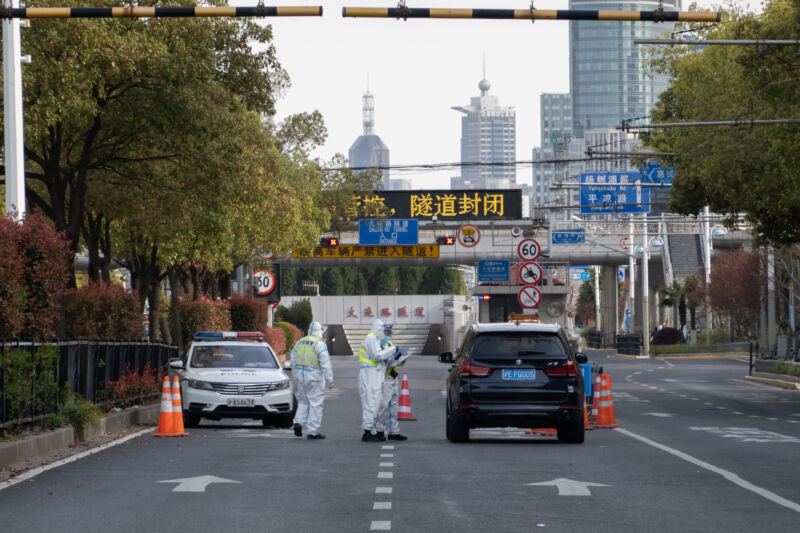
China’s coronavirus cases are rising to record highs, leading officials in China’s financial center of Shanghai to make the swift decision late on Sunday to shut down the city of about 26 million people. For weeks, officials denied they would impose lockdowns in response to the rising number of cases.
But this month, the spread of the ultra-transmissible ommicron variant has led to the highest rise in cases in China during the pandemic, and Shanghai has seen some of the highest numbers. On Sunday, the country reported more than 6,000 new cases, including 3,500 in Shanghai. According to data tracking by The New York Times, the number of daily new cases has increased by 233 percent in the past 14 days. The current number of cases is the highest yet for the country, which saw its previous peak in February 2020 when the new number hit just above 3,000 a day.
From March 28, the people of Shanghai on the east side of the Huangpu River began a four-day house-lockdown and mass-testing campaign. From April 1-5, people on the west side will take turns shutting down and testing. Officials are aiming to test the entire population during successive lockdowns, sending health workers in white hazmat suits to residents’ front doors.
According to Reuters reporters in Shanghai, city officials closed bridges and tunnels and restricted highway traffic on Monday. While people on the east side are locked up, people on the west side rushed to buy food and other staples. Supermarkets are reportedly running out of supplies and delivery services have been flooded. Out-of-town deliveries are left at checkpoints to avoid contact with the outside world, the Associated Press reports. Non-essential businesses and public transportation are all closed.
While the vast majority of cases discovered so far in Shanghai have been asymptomatic, health officials are particularly concerned about the spread of the virus. China has relatively low vaccination rates among the elderly population, who are most vulnerable to serious diseases. In addition, the domestic vaccines used in China have lower efficacy than those in western countries. Some fear China could see the same devastatingly high death rates as in a recent spike in cases in Hong Kong, which also relied on Chinese vaccines and had relatively low vaccination rates among the elderly.
In an interview mondayFormer FDA Commissioner Scott Gottlieb echoed the concern, saying, “If you don’t vaccinate your elderly population – the most vulnerable people in your society – you end up with very substantial consequences from the spread of this virus. And that is, in fact, the risk China is now running.”

